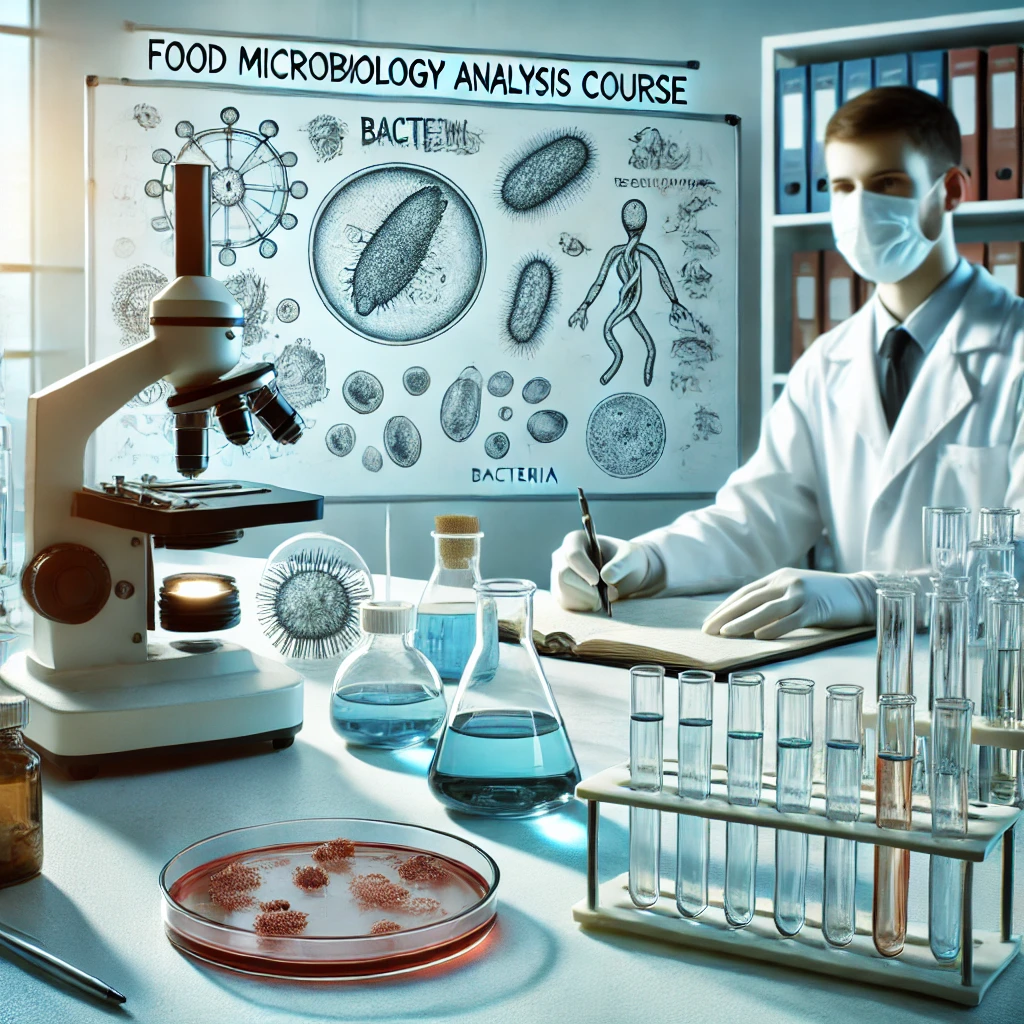Microbiological Food Analysis

About Course
Mastering Microbiological Techniques for Food Safety
Course Description: This comprehensive course is designed to equip participants with the necessary knowledge and skills to conduct accurate microbiological analysis of food products. It covers various analytical techniques used to identify microorganisms in food, including bacteria, fungi, and viruses. The course also includes hands-on training in conducting microbiological analyses and interpreting results to ensure the quality and safety of food products.
Objectives:
- Understand the fundamental principles of microbiological food analysis.
- Identify the primary microorganisms that impact food safety.
- Learn how to prepare samples and conduct analyses.
- Perform practical microbiological analyses on food samples.
- Analyze results and use them to assess product quality and safety.
- Understand the regulations and standards related to microbiological food analysis.
Prerequisites:
- Basic knowledge of biology and microbiology.
- Background in food safety and quality management (optional).
Student Ratings & Reviews

No Review Yet







